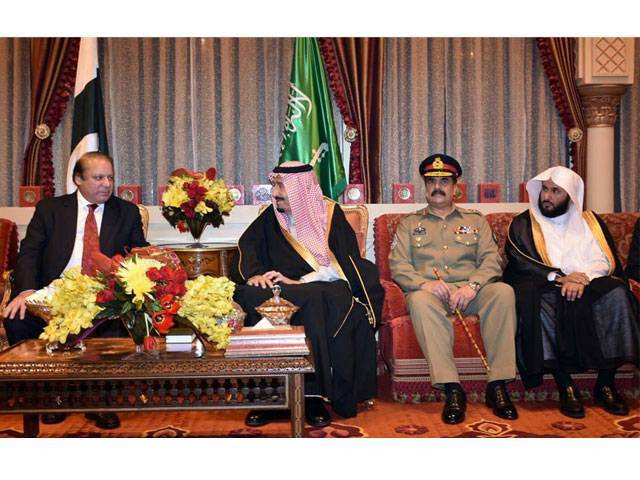‘Islamabad-Riyadh ties a matter of great concern for Tehran’
Scholar says careful diplomacy during regional conflicts had strengthened Iranian regime

Scholar says careful diplomacy during regional conflicts had strengthened Iranian regime. PHOTO: PM OFFICE
He said the close relationship between Islamabad and Riyadh had been a matter of concern for Iran from day one. Iran had seen the recent announcement by Saudi King Salman of a $1.5 billion aid/loan package for Pakistan as an indication of a possible nuclear agreement between the two countries, he said.
He said Pakistan-Iran relations had been at their lowest ebb during the Afghan jihad days. Iran had later supported an alliance of Shia groups against Taliban, he said.
On the Islamic regime in Iran, Saikal said Ayatollah Khomeini had sought a radical transformation of Iran into a Shiite Islamic republic using “a jihadi and an ijtihadi approach”.
He said Khomeini’s vision for the Iranian state had a liberal as well as an extremist strand to it. He said the first few years following the establishment of the Islamic republic were very turbulent. “Analysts had predicted that the regime will not last for long saying that the mullahs will not be able to handle complex economic and foreign policy affairs,” he said.
On why the regime had endured and what direction could it take in future, Saikal said Khomeini had put in place a two-tier system of governance to run the state affairs. At one level, he said, sovereign power was vested in the person of the supreme religious leader who had to be very well-versed in Islamic jurisprudence and well aware of the ways of the world as well. He said the idea was that the supreme leader could remain above factional politics and preside over the polity. At the other level, he said, representation of the people was ensured through elections to the office of the president and national assembly seats, he said.
Saikal said that Islamic republic had been established in a way that no state institutions could go out of their bound but different institutions could compete for power within the boundaries set for them. He said adherence to Islamic ideology with adjustments needed in view of external affairs had led to the complex balance between theocracy and democracy in Iran.
He said careful diplomacy during regional conflicts had also strengthened the Islamic regime. “Iran has maintained a close relationship with Asad regime in Syria. It has also invested heavily in Afghanistan while maintaining cordial ties with India and Russia,” he said.
Published in The Express Tribune, April 4th, 2016.



















COMMENTS
Comments are moderated and generally will be posted if they are on-topic and not abusive.
For more information, please see our Comments FAQ